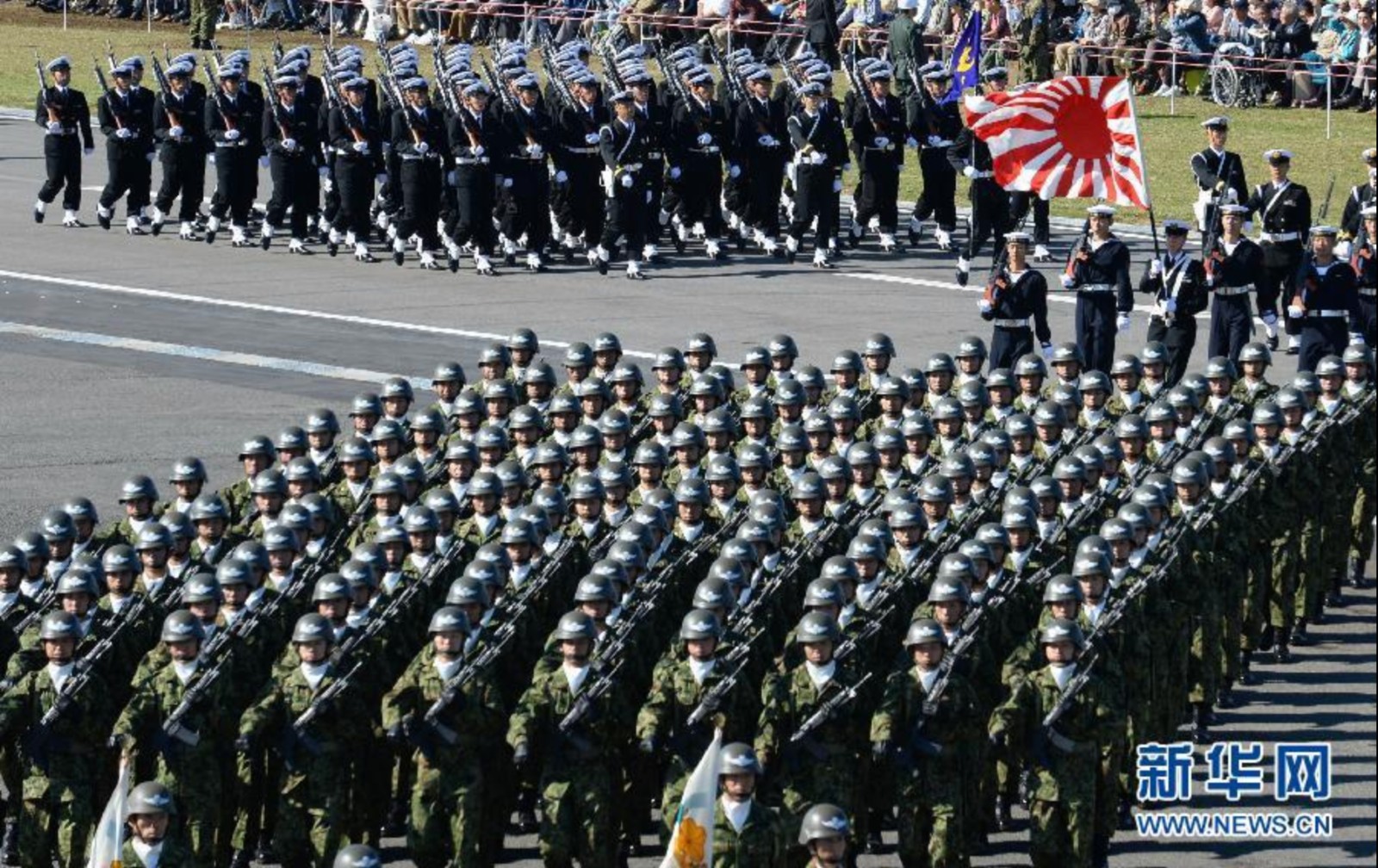Spotlight: Japan weighing dispatching SDF to Middle East in volte-face on matter
Source: Xinhua| 2019-12-04 23:11:24|Editor: yan

At the Asaka training ground of the land self defense force in Saitama County, Japan, the Japanese self defense force was inspected by the reference force. On the same day, Japan held the annual self defense force parade. Japanese Prime Minister Shinzo Abe and Japanese defense minister Ono Temple attended the military parade. Photographed by Ma Ping, reporter of Xinhua News Agency
TOKYO, Dec. 4 (Xinhua) -- Japan has informed Iran that it is considering dispatching its Self-Defense Forces (SDF) to the Middle East to conduct information-gathering operations and others related to enhancing the safety of commercial shipping in the region, its top government spokesperson said Wednesday.
If realized, the potential deployment would be a U-turn from Japan saying earlier in the year that it had no plans to deploy its SDF to the region, despite current tensions, with the nation's pacifist constitution also providing a potential stumbling block to the possible deployment.
According to Chief Cabinet Secretary Yoshihide Suga, Japan's top government spokesperson, Japan has said, however, it is in close coordination with Iran with Japanese Prime Minister Shinzo Abe having already explained the potential plan to Abbas Araghchi, Iran's deputy foreign minister for political affairs, during their meeting in Tokyo on Tuesday.
Suga added that Abe had explained to Araghchi, who serves as a special envoy of Iranian President Hassan Rouhani, that Iran needs to ensure that ships can navigate freely in the region, due to its position in the Persian Gulf.
Tensions have been rising in the Middle East following the United States pulling out of a 2015 international nuclear accord and slapping fresh sanctions on Tehran.
Among other incidents, in June, a Japanese-owned tanker was attacked near the Strait of Hormuz, a vital global shipping artery.
In July, however, Japan said it had no plans to deploy members of the SDF to the Middle East, as there had been a lull in attacks on commercial vessels near the Strait of Hormuz.
By the end of the year, in a turnaround by Japan, it will now seek cabinet approval for the dispatching of an SDF plane and patrol vessel to monitor shipping activities, with Suga saying that the Gulf of Oman has been chosen as possible locations for its SDF to be based.
While it is a key gateway for oil from the Middle East to reach resource-poor Japan, its pacifist constitution, as opposition party lawmakers have pointed out, may prevent Japan from sending troops to a potentially active theater, despite Abe's unpopular and yet-to-be-realized push to amend Japan's Supreme Charter and expand the global footprint of Japanese forces.
Article 9 of the constitution states that Japan forever renounces war as a means to settle international disputes and also prohibits Japan from maintaining war potential.
Japan has, prior to announcing its U-turn in considering to deploy its forces, been ardently urging Iran to abide by commitments it made under a 2015 nuclear agreement with several world powers and not take further steps that could potentially damage the accord.
Following U.S. President Donald Trump pulling the U.S. out of the nuclear accord inked in 2015 between Iran and six major powers and restoring sanctions on Iran, Tehran said it planned to keep more enriched uranium than is permitted under the pact.
Tensions, thereafter, have risen in the Middle East, with the U.S. sending carrier forces, B-52 bombers, as well as armed forces to the Gulf.
Japan is the world's fourth-largest oil importer and relies heavily on the Middle East for the majority of its crude oil.
As for Iran's reaction to Japan's potential move, Araghchi told Japan's public broadcaster NHK on Tuesday that Tehran doesn't believe that the presence of any foreign forces in the region would help boost stability, security or peace.
Araghchi also said that he had conveyed Iran's stance to Abe when the pair met.
He said that U.S. policies are the root cause of escalating tensions in the Middle East and criticized the U.S. for imposing "maximum pressure" on Iran and withdrawing from the 2015 nuclear agreement, NHK said.